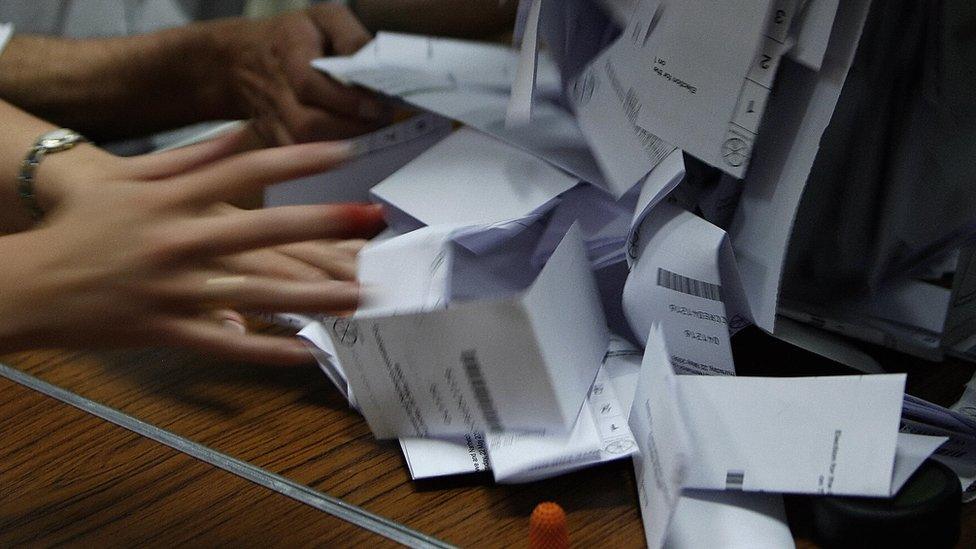EU citizens sent referendum poll cards
- Published

A "small number" of EU citizens in the UK who are not eligible to take part in the referendum have received polling cards for the 23 June vote.
The Electoral Commission said some had also received postal votes owing to a software "issue" in some areas.
It says this has been resolved and the names will not appear on electoral registers used at polling stations.
Leave campaigner Iain Duncan Smith criticised "lax" protections and a "highly concerning breach of the law".
The former cabinet minister has urged Prime Minister David Cameron to ensure that non-UK EU citizens living in the UK are not able to vote in the referendum.
EU citizens from non-UK countries are not entitled to vote, unless they are citizens of the Irish Republic, Cyprus or Malta.
But Mr Duncan Smith, in a letter to Mr Cameron also signed by Tory MP Bernard Jenkin, said there were "many and varied" examples of EU nationals being sent polling cards and expressed "serious concerns about the conduct of the European Union referendum and its franchise".
They said a Nottingham City Council officer had emailed a Vote Leave supporter to say the council was unable to check whether people put their correct nationality on an application, and had to assume the information submitted was correct.
'Cancelled'
The Electoral Commission said it became aware on Wednesday afternoon "that there had been an issue with elections software used by a number of local authorities in England and Wales".
A spokesman said: "We are aware that a small number of non-eligible EU citizens had mistakenly received poll cards and, in some instances, postal votes for the EU referendum.
"We are working to confirm the exact number of electors who have been affected.
"The software provider has resolved the issue which means that, if any postal votes have been issued to these electors, they will be cancelled and none of these electors will be shown as eligible on the electoral registers to be used at polling stations on 23 June."
All those concerned would receive letters telling them they would not be able to vote.
Earlier the commission said: "A poll card does not entitle someone to vote. In order to be able to cast their vote, a person must appear on the electoral register and be shown on it as being eligible to vote.
"A person's eligibility is always checked by polling station staff before issuing a ballot paper and if they are not eligible, no ballot paper will be issued."
'Shocked'
Leave campaigners Mr Duncan Smith and Mr Jenkin said the commission should take "responsibility for this highly concerning breach of the law".
"We believe the British public will be as shocked as we are to discover that the integrity of the franchise for this long-awaited referendum with profound consequences for the future of our nation is being protected in such a lax manner."
The MPs asked how wrongly-issued postal votes would be identified and what the scale of the problem was.
They said: "Can you confirm that no checks are conducted to verify someone's nationality when they apply to join the electoral roll? Do you believe that is sensible?"
The Electoral Commission pointed out that in 2014, the body itself called for ID, external to be shown in polling stations as a way of tightening up on voter fraud. Legislation would be needed for this to happen.
Kingston-upon-Thames council in south-west London said a Polish citizen in the area - whose case had been highlighted , externalby the Guido Fawkes website - was sent a polling card because he had put "British" as his nationality on the electoral register.